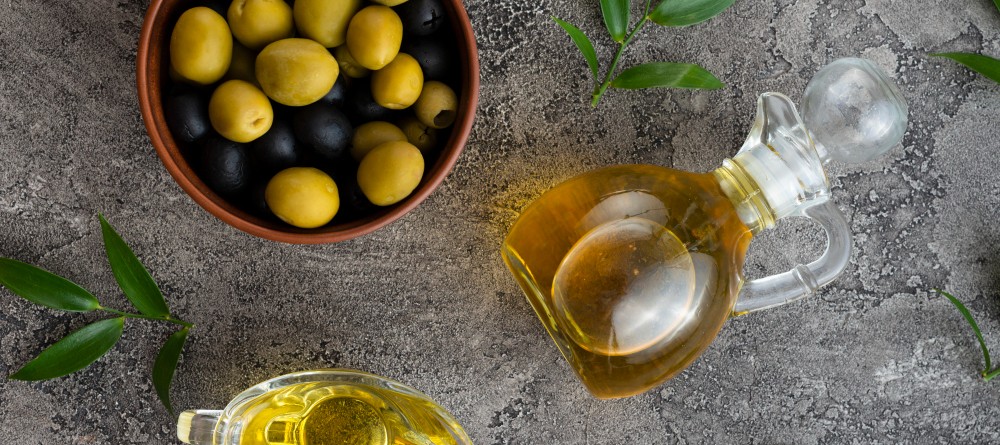Olives vs Olive Oil
Olives and olive oil have long been celebrated for their rich flavor and health benefits, largely due to their high content of beneficial compounds like polyphenols and monounsaturated fats. While olive oil has been extensively studied and shown to support heart, brain, joint, and metabolic health, olives themselves have not been as widely researched. This article explores the nutritional benefits of both olives and olive oil, highlighting the differences and similarities in their impact on health.
The Nutritional Power of Olive Oil
Olive oil, particularly extra-virgin olive oil (EVOO), is a cornerstone of the Mediterranean diet. It is packed with natural compounds such as tocopherols, carotenoids, and polyphenols, alongside monounsaturated fats like oleic acid. These elements confer potent antioxidant and anti-inflammatory properties, making olive oil a valuable dietary component.
- Heart Health:
– Reducing Risk of Heart Disease: Polyphenols in EVOO help protect against heart disease, stroke, and atherosclerosis. Consuming just half a tablespoon daily can reduce the risk of heart disease by 20%.
– Lowering Bad Cholesterol: Oleuropein, another compound in olive oil, decreases levels of low-density lipoprotein (LDL) cholesterol, which is linked to an increased risk of heart disease.
– **Blood Pressure Regulation**: Oleic acid and other compounds in olive oil have been shown to lower blood pressure, contributing to overall cardiovascular health. - Metabolic Health:
– Olive oil helps regulate blood sugar levels and improves insulin sensitivity, reducing the risk of Type 2 diabetes. A Mediterranean diet enriched with virgin olive oil has been associated with a lower incidence of this disease. - Brain Health:
– Olive oil consumption is linked to a reduction in beta-amyloid plaques, which are associated with Alzheimer’s disease. Studies suggest that a diet rich in olive oil may enhance cognitive function and protect against neurodegenerative conditions. - Joint Health:
– The anti-inflammatory properties of the polyphenols in olive oil can benefit those with rheumatoid arthritis, potentially reducing joint pain and inflammation.
Are Olives as Beneficial as Olive Oil?
While olives contain similar beneficial compounds as olive oil, the concentrations are generally lower due to the preparation process, which often involves soaking in salt water. This results in higher sodium content, which can be a concern for individuals with high blood pressure or heart disease. However, olives still offer antioxidants and healthy fats that may contribute to health benefits such as reduced inflammation and protection against cellular damage.
Nutritional Comparison: Olives vs. Olive Oil
| Nutrient | Olives (1 tbsp) | Olive Oil (1 tbsp)
| Calories | 9.74 kcal 124 kcal
| Fat | 0.916 g 14 g
| Fiber | 0.134 g 0 g
| Sodium | 61.7 mg 2 mg
Best Types of Olives for Your Health
Both green and black olives are nutritious, though they differ slightly in nutrient content. Green olives, like Manzanilla and Cerignola, tend to have slightly more sodium than black varieties like Kalamata and Niçoise. Regardless of type, olives can be enjoyed as part of a balanced diet.
| Nutrient | Green Olives (5 pcs) | Black Olives (5 pcs)
| Calories | 29 kcal 29 kcal
| Fat | 3 g 2.7 g
| Sodium | 311 mg 184 mg
The Verdict: Olive Oil vs. Olives
While both olive oil and olives provide health benefits, olive oil, particularly extra-virgin, stands out due to its higher concentration of beneficial compounds and lower sodium content. Olive oil’s well-documented effects on heart, brain, and joint health make it a superior choice for those looking to maximize these benefits. However, olives can still be a nutritious, flavorful addition to the diet when consumed in moderation, particularly for those mindful of their sodium intake.
Additional Insights
Recent research continues to explore the role of olive oil and olives in promoting health. The polyphenols in olive oil are being studied for their potential to enhance gut health by promoting a healthy microbiome. Additionally, the high monounsaturated fat content in olive oil has been linked to improved lipid profiles and reduced inflammation, which may further protect against chronic diseases.
This comprehensive overview highlights the key health benefits of olive oil and olives, providing a nuanced perspective on their nutritional differences and benefits. By including olive oil in your diet and enjoying olives in moderation, you can take advantage of their unique health-promoting properties.











